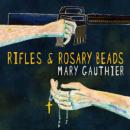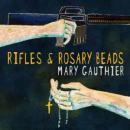Who's gonna care for the ones who care for the ones who went to war?
There's landmines in the living room and eggshells on the floor
I lost myself in the shadow of your honor and your pain
You stare out of the window as our dreams go down the drain
Invisible, the war after the war
I get no basic training, I get no purple heart
I'm supposed to carry on, I can't fall apart
People look at you and thank you for the sacrifice you made
They look at me and smile and say I'm lucky you're okay
Invisible, the war after the war
But I'm a soldier too, just like you
Serving something bigger than myself
And I serve unseen, caught in between
My pain and the pain of someone else
But I'm stronger than you think I am
I'm right here by your side
I am not your enemy, I don't wanna fight
There's no going back in time, I know you're not the same
But you are not the only one for whom the world has changed
Invisible, the war after the war
There's landmines in the living room and eggshells on the floor
I lost myself in the shadow of your honor and your pain
You stare out of the window as our dreams go down the drain
Invisible, the war after the war
I get no basic training, I get no purple heart
I'm supposed to carry on, I can't fall apart
People look at you and thank you for the sacrifice you made
They look at me and smile and say I'm lucky you're okay
Invisible, the war after the war
But I'm a soldier too, just like you
Serving something bigger than myself
And I serve unseen, caught in between
My pain and the pain of someone else
But I'm stronger than you think I am
I'm right here by your side
I am not your enemy, I don't wanna fight
There's no going back in time, I know you're not the same
But you are not the only one for whom the world has changed
Invisible, the war after the war
inviata da Dq82 - 6/3/2018 - 14:34
×
![]()








Rifles and rosary beads
Mary Gauthier commenta l’America in guerra
Da quando gli Stati Uniti si sono assunti il ruolo di “gendarmi del mondo” quello dei reduci, dei war veterans, è sempre stato uno dei nervi scoperti della società americana. Negli ultimi vent’anni gli interventi in Kuwait, Afghanistan e Iraq non hanno certo migliorato la situazione, fino a far addirittura rivivere i fantasmi del Vietnam. In questo disco Mary Gauthier dà voce ai reduci e soprattutto alle loro famiglie: la sofferenza di chi aspetta non è, per molti versi, inferiore a quella di chi combatte. Si veda la bellissima Brothers: “What about the women, what do we deserve? I was just like you when the bullets flew”.
Il disco nasce da tutta una serie di colloqui che Mary ha avuto con alcuni veterani di guerra e, soprattutto, con le loro famiglie; in qualche caso con famiglie di defunti. Il valore del loro contributo è stato evidenziato dalla loro assunzione al rango di coautori dei singoli pezzi. Date queste premesse, è quasi inevitabile che il vero e proprio valore aggiunto del disco stia nei testi.
Una bella edizione italiana per Rifles & Rosary Beads
Appare quindi particolarmente lodevole che l’edizione italiana sia corredata della traduzione dei medesimi, anche se la pronuncia di Mary Gauthier è comunque piuttosto intelligibile. Testi in cui traspare non solo l’angoscia dell’essere in guerra, ma anche l’orgoglio di aver fatto quello che si è creduto essere il proprio dovere e l’importanza data a valori come il cameratismo e il reciproco sostegno nel pericolo, come in Got Your Six.
L’approccio musicale e vocale di Mary Gauthier
Il tutto è raccontato in modo tanto partecipato quanto scarno, totalmente privo di ogni tipo di retorica: sia quella militarista sia quella antimilitarista, talvolta ugualmente vuota. Quello che qui interessa è il lato umano, i drammi personali: anche se è ovvio che in certi casi – come usava dire nei lontani tempi della mia gioventù – il “personale” e il “politico” finiscono spesso col coincidere. O, almeno, con l’incontrarsi.
Sul piano musicale il disco si presenta altrettanto scarno, quasi a non voler distrarre da quello che deve colpire l’attenzione dell’ascoltatore. Ma è uno “scarno” in realtà molto curato, sia nei pezzi più minimalisti sia in quelli nei quali il tono si fa quasi epico. La voce di Mary, che suona anche chitarra e armonica, è sempre molto “coinvolta” e partecipe. Per gli altri musicisti, in un contesto equilibratissimo e privo di svolazzi virtuosistici fini a se stessi, è d’obbligo comunque segnalare la chitarra e il mandolino di Will Kimbrough e, soprattutto, il violino sempre commovente di Michele Gazich.
tomtomrock.it